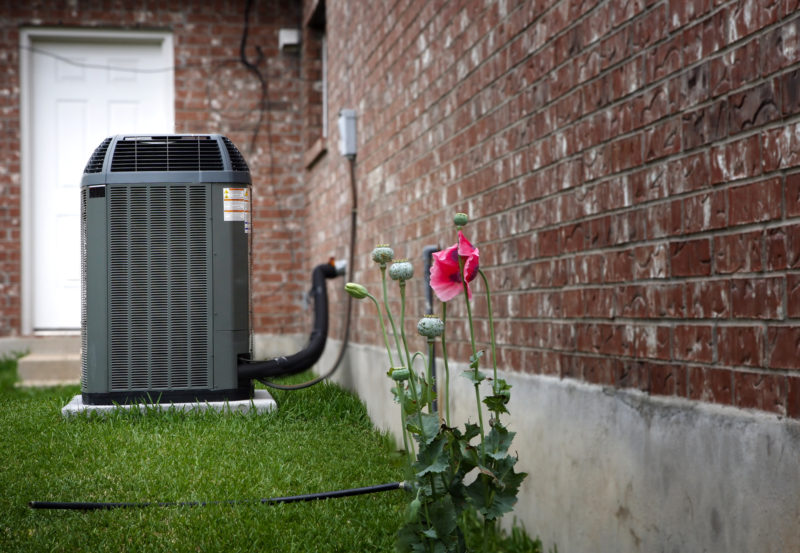
There are many types of insurance that roofing contractors can choose from. There are several types of insurance available for roofing contractors, including general liability, workers' compensation, Inland Marine, and commercial crime. Here are some common policies that should be considered:
General liability insurance
General liability insurance is available for roofing contractors. It covers many things. A roofer may fail to place tarps. This could lead to a passerby getting hurt if they do not. General liability insurance may be able to cover costs related to a lawsuit, including medical treatment or court costs. You may also be eligible for additional damages due to incorrect advice or errors. This insurance is a requirement for roofing contractors depending upon the circumstances.
Many roofing jobsites can get messy. Even if the workers keep their work area clean, anyone can trip over any debris. General liability insurance can be purchased for roofing contractors to cover legal and medical expenses for third-party injuries that occur during work. For roofing contractors who work alone, it is crucial to have a policy. It is worthwhile to insure your business, even though it can be costly.

Workers' compensation insurance
Numerous states have laws that require roofers and other contractors purchase workers' compensation insurance. In Pennsylvania, for example, workers' compensation insurance is required for any company with three or more employees. California Department of Insurance has details about what coverage roofers and contractors must have. While Texas does not require roofing contractors to purchase workers' compensation insurance, you should check with your state's insurance department to determine your obligations.
You may have to contribute depending on the laws in your state. For workers who are injured while working on your roof, Ontario is one example. You should also seek out advice from an insurance professional or lawyer about the specifics of your state's requirements. While it's not required in all states, most require that all businesses purchase this coverage to protect their workers.
Inland marine insurance
Inland marine coverage for roofing contractors covers tools and materials that a roofer uses on a jobsite. Many contractors store materials overnight at their client's office. These materials and any injuries on the job site are covered by inland marine insurance. Nationwide offers inland marine insurance. Nationwide is a service mark of Nationwide Mutual Insurance Company. This insurance covers the cost to repair or replace stolen or damaged materials.
Inland marine insurance is essential if you have a roofing company. If you own, rent, or lease property, you'll need this coverage if a customer damages your property. BOP protection protects roofing contractors against lawsuits arising from a project. Also, make sure to look into professional liability insurance. This coverage is especially helpful if you have a roofing company that consults with customers frequently. To avoid unexpected expenses, it is worth checking your coverage.

Commercial crime insurance
A commercial crime policy will pay for any damages caused or resulted from an act of criminality. This type of insurance protects businesses against internal and external threats, such as employee theft or fraud. It is important for contractors to have this type of coverage in place because of the potential for losses that can be devastating to a small business. Here are some common losses that roofing contractors could be exposed to.
The policy will protect inventory losses caused by shortages that are discovered during a physical inventor count or reconciliation of financial statements. It also covers losses due to investment decisions or trading, as well as indirect income from stolen money and securities. Fraudulent use of warehouse receipts is not covered. Roofing contractors should also have this type of insurance in place to cover their assets. Additionally, commercial crime insurance helps to protect against business loss due to theft.
FAQ
What is the scope of my SCA?
The scope of the work will be specified by your SCA, which will include how long it will take, what materials will be used, what equipment will be needed, and whether special permits will be required.
Is there anything I must sign before I can begin work?
Yes, both parties must sign the SCA. This means that neither party can alter their minds later without the consent of the other.
What is a service contract agreement?
An agreement between two parties for the provision of services is called a Service Contract Agreement (SCA). The SCA defines those services, how much time and effort should be spent on them, who pays for them and when they start. The SCA also describes what happens if either side violates its obligations.
Is there any limit on how much money I can spend for the project?
No. No. You might be able to negotiate lower prices with the contractor.
Do I require a legal representative in order to sign my Service Agreements
No. You don't need a legal representative to sign your service agreements. You may wish to appoint one for a precautionary reason.
Legal representatives are people who represent another person. If you are a contractor, it may be a good idea to appoint someone you trust to represent you.
This could involve hiring a solicitor, accountant, or other professional. This could be a matter of appointing someone who will look after your business interests.
In most cases, the client will appoint a legal representative. Sometimes, however.
Legal representation in any case means that you are legally protected.
Where can I find more information about building permits?
You can contact your local government authority, such as the NSW Local Government Association, or your local realty agent. They should be available to help you determine the right steps to take to get building permission.
Statistics
- (1) Ascertain the extent to that offers are based on the payment of overtime and shift premiums; and (2) Negotiate contract prices or estimated costs without these premiums or obtain the requirement from other sources. (acquisition.gov)
- (v) Place or places of performance of the prime contract and first-tier subcontracts estimated at $10 million or more, if known. (acquisition.gov)
- (ii) Name, address, and telephone number of each proposed first-tier subcontractor with a proposed subcontract estimated at $10 million or more. (acquisition.gov)
- Reasonable late fees go up to 25% per year on unpaid sums. (lawdepot.com)
- While we offer all our high-quality services at competitive prices, we know that many who need our services are on fixed incomes, so we offer a 10 percent discount for seniors and military members. (homeservicecontractorsinc.com)
External Links
How To
What should a Service Agreement include?
Service agreements (SAs) are essential for any business relationship. It describes what you expect of each other and how to achieve it. The SA also details when and where each party should fulfill its contractual obligations.
These are the key components of a successful SA:
-
The scope of work and services required by both parties.
-
Payment terms details, including start date and expiration dates for goods/services.
-
A price agreed upon for the project.
-
Any additional costs like VAT etc.
-
Whether there are other topics that require discussion.
-
Who will take care of the job if it goes wrong?
-
How disputes can be resolved
-
What happens if one of the parties breaches the contract?
-
What happens in the case of a dispute?
-
When does the contract come into effect?
-
What happens if one of the parties fails to perform.
-
What time do you need to pay your invoices?
-
Who pays for travel expenses?
-
Where the money comes.
-
What happens if a client changes mind about the project?
-
What happens if the supplier isn't there?
-
Who has permission to view the site during construction
-
What happens if the customer cancels the project.
-
What happens when the product is defective?
-
What happens when the manufacturer refuses supply?
-
What happens if equipment fails?
-
What happens if a project takes longer than expected?
-
What happens if work isn’t completed in the timeframe agreed upon?
-
What happens when the project's quality falls below what you expected?
-
What happens if the cost overruns.
-
What happens if materials are not delivered on time?
-
What happens if the material arrives broken?
-
What happens when the products don't meet standards?
-
What happens if you cancel the job before it is complete?
-
What happens if the business goes under?